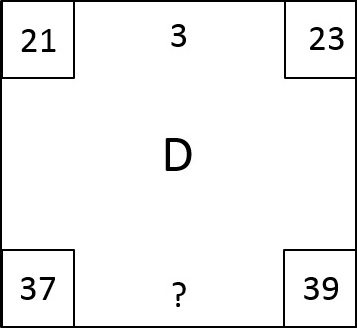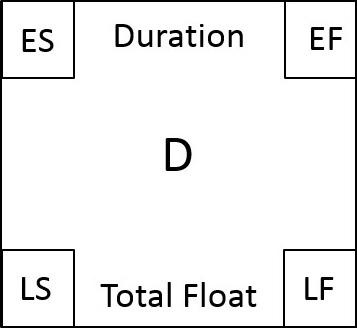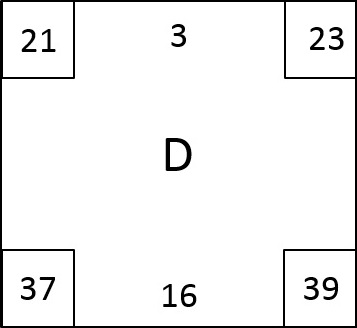Hello everyone! Here is this week's free PMP® exam sample question from the PM Exam Simulator.
Following is an illustration of a project network activity node that includes some information about activity D. Given the information provided, what is the total float of activity D?
A. 2
B. 14
C. 16
D. 18
HINT: What output of the Acquire Resources process describes the physical resources reserved for the project?
All our questions are updated to the latest
A Guide to the Project Management Body of Knowledge (PMBOK® Guide) standard. Stop by at
free.pm-exam-simulator.com/
and try the PM Exam Simulator free for 7 days. We are a trusted and experienced education provider.
Answer and Explanation:
The correct answer is C.
To answer this question, the first step is to understand the meaning of the values displayed on the network activity node. The accepted convention is shown below, where:
- ES = early start
- EF = early finish
- LS = late start
- LF = late finish
The total float can be calculated using either one of the following two formulas:
- Total Float = LF - EF
- Total Float = LS - ES
To illustrate, we will use the first formula:
Total Float = LF - EF = 39 - 23 = 16
Here is the project schedule network activity node filled in with the correct answer for total float, 16:
Details for each option:
A. 2
Incorrect. You might have gotten this answer if you merely subtracted 39 - 37 across the bottom or 23 - 21 across the top, but neither LF - LS nor EF - ES is the correct formula for float.
B. 14
Incorrect. You might have gotten this answer if you subtracted diagonally 37 - 23, but LS - EF is not the correct formula for float.
C. 16
Correct. There are two formulas for total float. One goes up the left (start) side: Total Float = LS - ES. The other goes up the right (finish) side: Total Float = LF - EF. Both get the same correct result of 16.
D. 18
Incorrect. You might have gotten this answer if you subtracted diagonally 39 - 21, but LF - ES is not the correct formula for float.
Reference:
A Guide to the Project Management Body of Knowledge (PMBOK® Guide) – Sixth Edition, Project Management Institute Inc., 2017, Page(s) 210-211; see also PMI® Practice Standard for Scheduling – Second Edition



